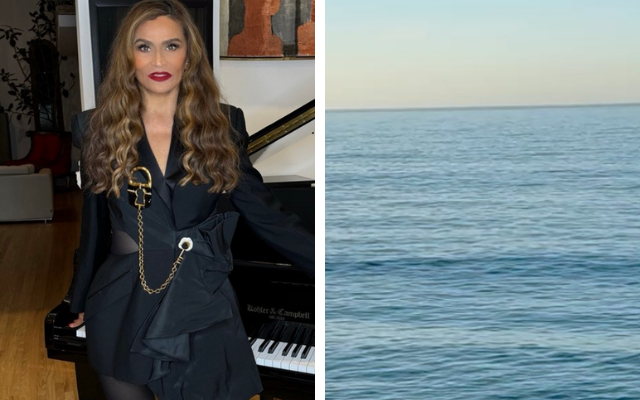For some movies playing at the fall film festivals in Venice, Telluride, and Toronto, the events are a chance to continue a conversation that started earlier in the year, with world premieres at festivals like Sundance and Cannes. On the first day of TIFF, for example, Cannes holdovers like La Chimera, The Zone of Interest, and Perfect Days had the chance to thrill new audiences, while Anatomy of a Fall sold out screenings in Telluride on its way to playing to packed houses in Toronto.
Awards season is intended to celebrate films from across the entire year, and we’ll have plenty of time to look back at Past Lives, Asteroid City, and other earlier-in-the-year releases as the season continues. But with Toronto wrapping up and Venice and Telluride still recent memories, we’re taking stock of the 14 best world premieres we saw across all three festivals. From riotous comedies to heartbreaking romances to biopics that defy definition, these are all films worth anticipating when they make their way to broader audiences later this year.
For much more on the fall festivals, revisit our festival live blog, which includes reviews, interviews, Oscar speculation, and a whole lot more.
VENICE FILM FESTIVAL
Poor Things
Once again creating a rich, quirky world all his own, director Yorgos Lanthimos centers his latest work on Bella (Emma Stone), a woman who is brought back to life by a mad scientist (Willem Dafoe) and eventually embarks on a wild adventure full of sex, exploration, and hard lessons about the reality of the world. The zany black comedy features a career-best performance by Stone, who fully commits to playing a woman whose mind starts out as a baby’s. Poor Things became the first best-film winner of the fall season, nabbing the coveted Golden Lion at the Venice Film Festival, and with it having amassed strong reviews from the critics as well, we have to assume there are many more accolades to come. —Rebecca Ford
Priscilla
If Sofia Coppola’s film is to be viewed as a companion piece to Baz Luhrmann’s Elvis, those companions are awfully estranged. Luhrmann’s film is loud and celebratory, whereas Priscilla is still, quiet, haunted by pain and doubt. The film, based on Priscilla Presley’s memoir about her time with Elvis, is a sober but lovely depiction of a young woman caught up in the storm of someone else’s fame, a girl realizing that her marry-a-rock-star fantasy has come at quite a steep cost. Cailee Spaeny and Jacob Elordi do finely tuned, subtle work as Priscilla and Elvis, never losing themselves in flashy mimicry. Priscilla may be too small and interior to garner much Oscar attention, but it’s a sterling addition to Coppola’s canon of films that look at lonely young women struggling for meaning. —Richard Lawson
Maestro
Due to the ongoing actors strike, Bradley Cooper couldn’t be at the Venice Film Festival in person, but his second directorial effort at the event was just as successful as his first. Maestro, a film about iconic composer Leonard Bernstein, was met with a warm reception, particularly for Cooper’s transformative performance as Bernstein and Carey Mulligan’s as Bernstein’s wife, Felicia Montealegre. Instead of making a traditional biopic, Cooper has chosen to center the story on the partnership between Bernstein and Montealegre, often diving into fantasy elements in a romantic swirl of a movie that should charm audiences when it hits theaters in November and Netflix in December. —R.F.
Hit Man
Richard Linklater’s small but spry noir riff premiered to enthusiastic audiences in both Venice and Toronto, suggesting that it could be a big theatrical success if picked up by the right distributor. (As of this writing, the film is still for sale.) Glen Powell, a charismatic presence in everything from Linklater’s own Everybody Wants Some!! to Top Gun: Maverick, explodes into full movie stardom as Gary Johnson, a mild-mannered IT guy who winds up pretending to be a hit man to help the New Orleans police. His scenes with Adria Arjona, the love interest he meets when she tries to hire him to kill her husband, crackle like scenes in the best screwball comedies. It’s a treat from start to finish. —Katey Rich
Ferrari
While Michael Mann’s biopic isn’t exactly one of the beloved director’s sleek wonderments, it still packs a grim punch. Adam Driver plays Enzo Ferrari as a stubbornly ambitious man in his late 50s, obsessed with his cars’ racing prowess while his company’s commercial business falters. Back home, Ferrari struggles to make peace with his jilted wife, played with vigor by Penélope Cruz, and attend to his mistress (Shailene Woodley) and their young son. Mann ably balances the domestic with the public, staging argument scenes with as much crunch and fire as he does two film-defining car wrecks. Ferrari may not feature any cool crooks talking tough, but it does entertain and, in its own way, enlighten. —R.L.
Evil Does Not Exist
In just two years, Ryusuke Hamaguchi has gone from a relative unknown outside of his native Japan to one of global cinema’s most decorated, celebrated auteurs. His astounding 2021 doubleheader of Wheel of Fortune and Fantasy and Drive My Car won him countless placements on critics’ top 10 lists, as well as Oscar nominations for best picture, director, and adapted screenplay. Now this striking follow-up, arriving sooner than anticipated, has already taken home a big award too, Venice’s Grand Jury Prize (the competition’s runner-up honor). The less said about Evil Does Not Exist, a gently brilliant study of man and nature, probably the better—it zigs and zags, playing with red herrings and a sprinkling of character studies, through to its bold denouement. But trust that it’s a film further showcasing its director’s range while emphasizing his signature feel for philosophical realism. —David Canfield
TELLURIDE FILM FESTIVAL
All of Us Strangers
Andrew Haigh has made gorgeous, if unsung, films focused on the charge of new queer love (Weekend) and the agony of unfinished family business (45 Years), so it feels only right that the movie poised to deliver him a new level of acclaim and attention offers a poignant fusion of the two subject areas. All of Us Strangers follows a 40-something gay writer named Adam (Andrew Scott) on parallel journeys: the romance he strikes up with a neighbor (Paul Mescal) in their otherwise abandoned apartment building, and the reunion he experiences with his parents (Claire Foy and Jamie Bell), who died long ago, in his childhood home. Haigh lulls viewers into this tender metaphysical realm, stacking heartbreaking scenes of connection and loss atop one another like an emotional Jenga tower. By the final scene, it doesn’t come crashing down so much as it explodes—expanding both the film’s devastating impact and, perhaps, our view of Haigh’s capabilities behind the camera. —D.C.
The Holdovers
Alexander Payne is back in fine form with this charming holiday season film that’s set in the 1970s. Starring the director’s Sideways lead, Paul Giamatti, as a curmudgeonly boarding school teacher who’s tasked with watching the boys left behind during the holiday break, The Holdovers won over the Telluride Film Festival with its classic filmmaking of days gone by, as well as its memorable performances from Giamatti, Da’Vine Joy Randolph, and breakout star Dominic Sessa, himself a recent graduate of a New England boarding school. —R.F.
The Mission
This searing new film from the directors of Boys State flew a bit under the radar at a Telluride packed with major titles, but it deserves a spotlight as one of the best documentaries of the year. Amanda McBaine and Jesse Moss revisit the life of John Allen Chau, an evangelical missionary whose obsession with a conversion trip to North Sentinel Island—whose Indigenous population lives in voluntary isolation, with no outside-world contact—led to his untimely death. Interweaving a smart array of narrators and using animation that turns vital in the telling of Chau’s doomed mission, the movie walks the very fine line of interrogating extremist faith without mocking Chau’s earnest, fatally flawed belief system—and finds within that the deeply sad story of a family ripped apart and a father trying to find peace in the aftermath. —D.C.
TORONTO FILM FESTIVAL
American Fiction
It’s a surprisingly busy season for movies about frustrated academics and their thwarted dreams. But even in that saturated milieu, Cord Jefferson’s directorial debut stands out. The Emmy-winning TV writer based his first film on Percival Everett’s novel Erasure, about a down-on-his-luck professor named Thelonious “Monk” Ellison who finds inadvertent fame and fortune when his joke manuscript—a parody of Black poverty porn like the novel Push—becomes a bestseller. It’s a prickly, challenging role, and one American Fiction star Jeffrey Wright was born to play. He’s surrounded by an ace supporting cast, including versatile performers like Sterling K. Brown and Erika Alexander, whose storylines balance Everett’s sharp literary satire with a more grounded family drama. American Fiction is as ambitious as the young writers Monk despises. But unlike them, it’s got a brain and a heart as well. —Hillary Busis
His Three Daughters
A crowded New York City apartment becomes an ideal staging ground for family strife, and eventually intimacy, in the latest from writer-director Azazel Jacobs. It was one of the biggest surprises among the TIFF premieres, with audiences exiting screenings audibly weeping, and seemingly no one able to choose a favorite performance among those of the three lead actors—Carrie Coon, Elizabeth Olsen, and Natasha Lyonne. With the right distributor and a good campaign, though, we’d love to see this film as a chance for Lyonne, doing scaled-back, revelatory work as the black sheep sister of the family, to get her first Oscar nomination. —K.R.
Sing Sing
Colman Domingo was one of the few stars in attendance at TIFF this year, even though his big fall biopic, Rustin, is being released by Netflix, making it a project very much affected by the strike. That’s because he also had the intimate, achingly beautiful prison drama Sing Sing, an independent production still seeking release as of this writing. Domingo’s performance in Sing Sing is a showstopper, as I wrote in my review, but the film is a true ensemble effort, cowritten by director Greg Kwedar and Clint Bentley in collaboration with two Sing Sing prison alumni, one of whom plays himself in the film. It’s a film full of small miracles that deserves a long life beyond the festival. —K.R.
The Boy and the Heron
Perhaps the wind has been taken out of this animated masterpiece’s sails just a tad due to the news that The Boy and the Heron may not be Japanese genius Hayao Miyazaki’s final film after all. Regardless, the movie’s dreamy (and occasionally nightmarish) visuals and poignant story give it remarkable staying power. The story revolves around young Mahito (Soma Santoki), who is hounded by a trickster demon in the form of the titular bird (Masaki Suda) after his mother dies. Really, though, plot is beside the point. The Boy and the Heron’s pleasures lie in Miyazaki’s singularly creative creatures and set pieces, which overwhelm Mahito particularly after he takes a perilous journey into the heron’s magical realm. You may not understand what’s going on, but you won’t forget the way it makes you feel. —H.B.
One Life
A solid, traditional British period piece—about Nicholas Winton, a London stockbroker who organized the rescue of nearly 700 Czech children at the dawn of World War II—is given awards-y luster by Anthony Hopkins, who continues his recent streak of sharp, focused performances. One Life was one of the big tearjerkers in Toronto, giving other standouts like His Three Daughters a run for their money in the “make film critics cry in the middle of the day” race. The film is about a remarkable thing that actually happened, which is always a benefit where the Academy is concerned. While some people may find the beginning stretches of the film a little slow, its final 20 minutes are a knockout, sending audiences out of the screening feeling awed and inspired. —R.L.
Listen to Vanity Fair’s Little Gold Men podcast now.





















Discussion about this post